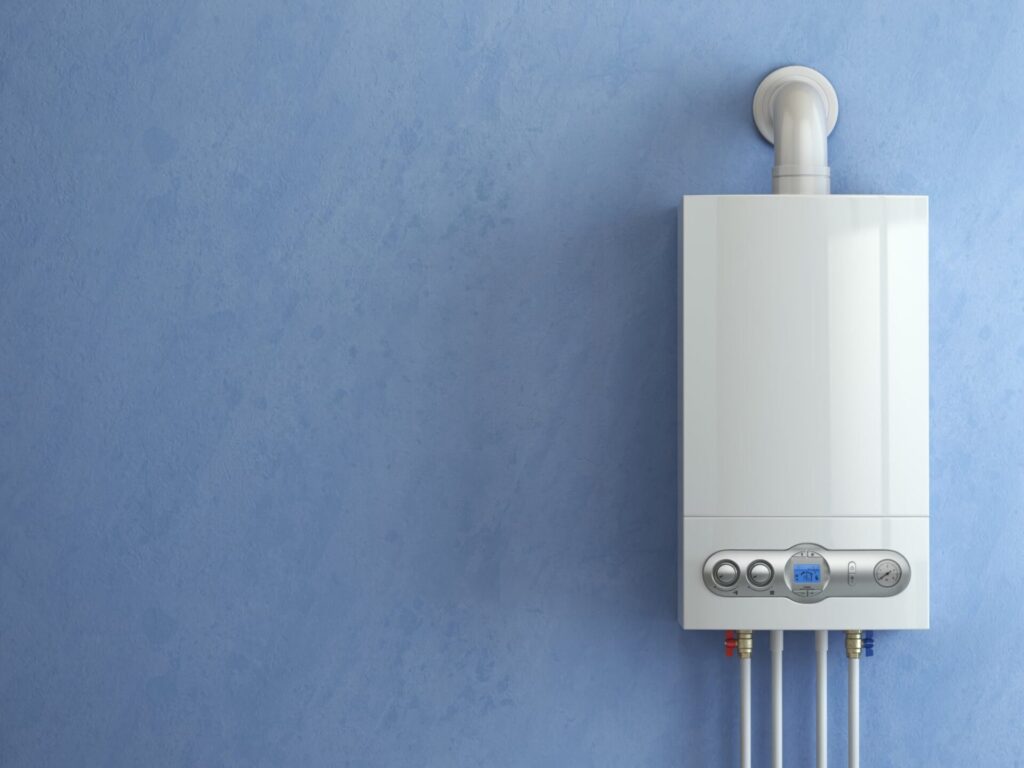Upgrading your water heater is an essential decision for homeowners and businesses. One of the most efficient choices is a tankless, demand-type, or instantaneous water heater. This system heats water on demand, eliminating the need for bulky tanks in a traditional tank water heater. However, while tankless units offer many advantages, they also have drawbacks.
How Does a Tankless Water Heater Work?
A tankless water heater heats water only when needed. Unlike the average water heater, which stores and constantly heats water, a tankless gas or electric water heater activates when you turn on the faucet. As cold water enters the unit, the gas burner or electric element instantly heats the water flowing through it, providing an on-demand hot water delivery system.
Pros of a Tankless Water Heater
Tankless water heaters have become increasingly popular among homeowners looking for new ways to efficiently and reliably heat their water. These on-demand water heaters offer the convenience of endless hot water, providing a reassuring solution for those looking to downsize to a tiny home.
- Energy Savings and Efficiency: Heating water only as needed avoids the energy consumption associated with conventional storage tank water heaters, leading to substantial energy savings and lower monthly energy costs. Although the up-front investment is higher, the long-term savings in energy usage make it a cost-effective option over time.
- Endless Hot Water: Unlike traditional water heaters that run out of hot water, tankless water heaters provide uninterrupted supply. As long as the unit's flow rate capacity is not exceeded, you'll never run out of hot water.
- Space-saving Units: Tankless designs are compact and mounted on walls, saving space compared to the bulky tanks of traditional water heaters—beneficial in homes or businesses with limited storage space.
- Reducing Risk of Water Damage: With no large tank, there's a lower risk of leaks or tank failure, which can cause water damage in traditional systems. Additionally, tankless water heaters generally require less frequent maintenance than conventional storage tank water heaters.
Cons of a Tankless Water Heater
Although the allure of endless hot water seems worthy, it's always essential to consider the significance of any drawbacks of owning a tankless water heater.
- Higher Initial Costs: A tankless water heater's up-front investment is significantly higher than a traditional tank water heater. Installation is more expensive, especially if your home needs gas lines, venting, or electrical capacity modifications.
- Flow Rate Limitations: Although tankless systems provide continuous hot water, their flow rates can be a limitation. Running multiple hot water appliances simultaneously, like a shower and dishwasher, may reduce water pressure or temperature if the unit needs to be sized appropriately.
- Installation Complexity: Installing a tankless gas water heater may require proper venting, while electric tankless water heaters may need an electrical upgrade. Homes using natural gas, propane, or electric systems have different requirements, which can complicate the installation process.
- Energy Consumption During High Demand: While tankless water heaters are more energy-efficient overall, periods of high water demand can increase energy usage if the unit struggles to meet your household's needs.
- Carbon Monoxide Risks: Gas-powered tankless water heaters require proper ventilation to prevent carbon monoxide buildup, making professional installation critical for safety.
Trust Clements Plumbing To Help You Choose the Right Tankless Water Heater
A tankless water heater provides energy savings, continuous hot water, and a space-saving design, but it also comes with higher up-front investment and potential limitations in flow rate. However, the long-term energy savings make it a financially savvy choice. If you're considering this option, weigh the initial cost against long-term energy savings and be sure the unit can handle your household's hot water demand.
Upgrade to a tankless water heater is easy; contact Clements Plumbing Heating and Air today for scheduled installation and reliable service. With over 50 years of experience, they'll ensure you get the right system to meet your needs and maximize energy efficiency. Call them at (417) 682-3797 or schedule your consultation online!
